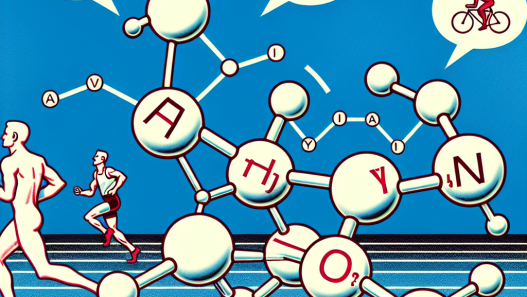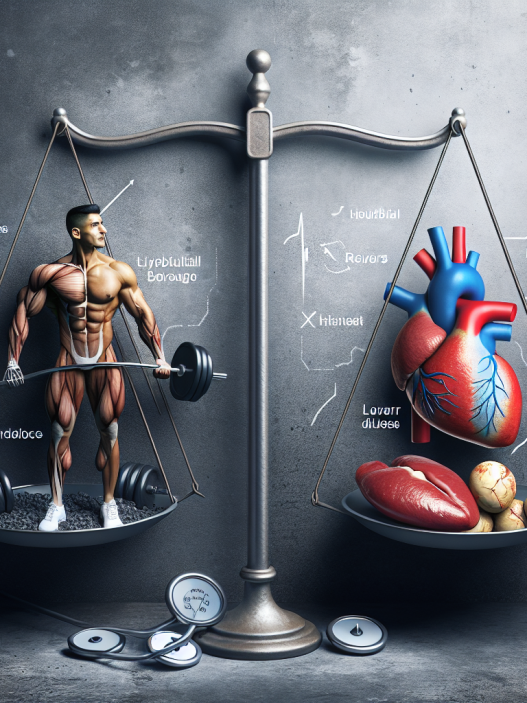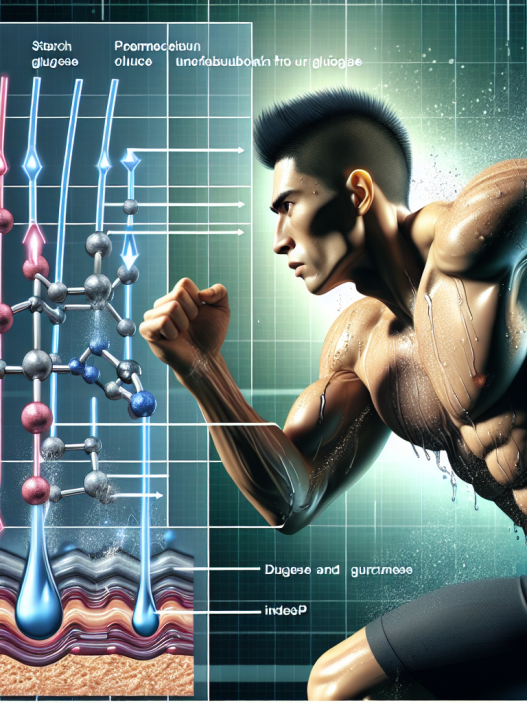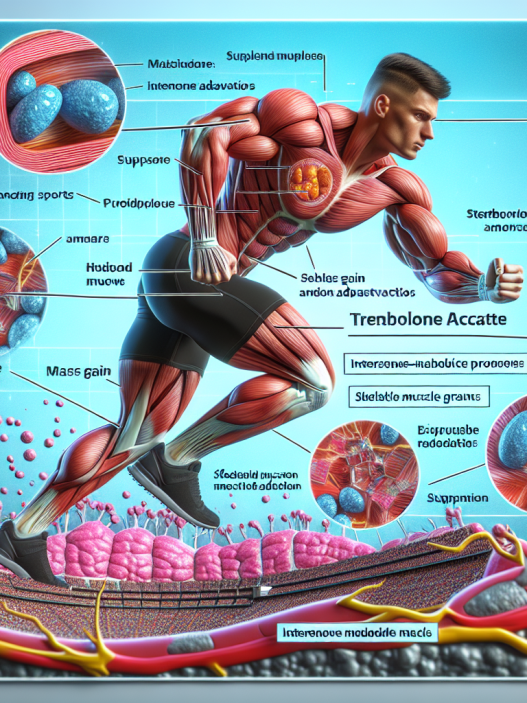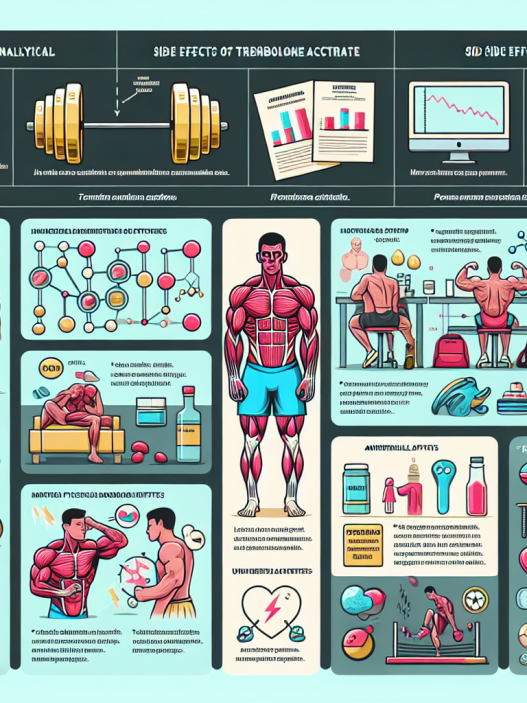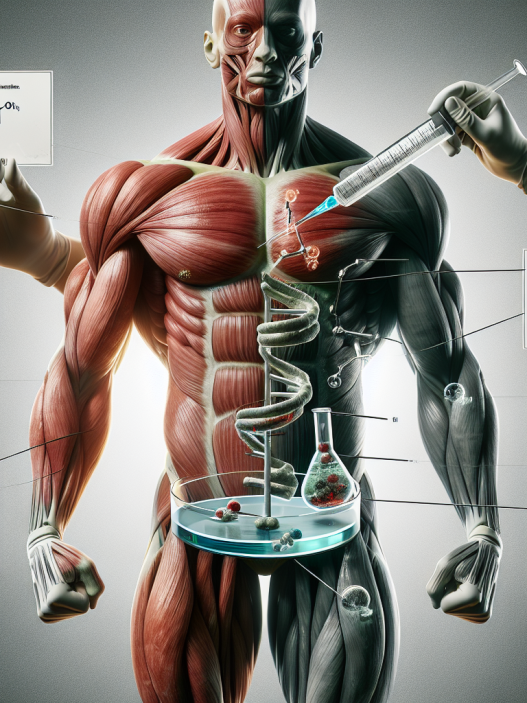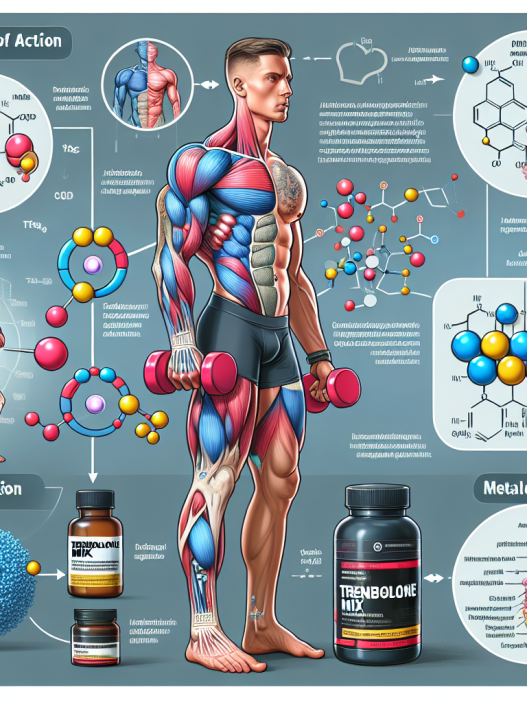-
Table of Contents
The Effects of Testosterone Undecanoate on Sports Performance
Testosterone is a naturally occurring hormone in the human body that plays a crucial role in the development and maintenance of male characteristics. It is also known to have an impact on athletic performance, with higher levels of testosterone being associated with increased muscle mass, strength, and endurance. As a result, testosterone and its derivatives have been used by athletes for decades to enhance their performance. One such derivative is testosterone undecanoate, a long-acting injectable form of testosterone that has gained popularity in the sports world. In this article, we will explore the effects of testosterone undecanoate on sports performance and its potential benefits and risks.
The Pharmacokinetics of Testosterone Undecanoate
Before delving into the effects of testosterone undecanoate on sports performance, it is important to understand its pharmacokinetics. Testosterone undecanoate is a prodrug, meaning it is converted into its active form, testosterone, in the body. It is administered via intramuscular injection and has a long half-life of approximately 33 days (Nieschlag et al. 2010). This means that it remains in the body for an extended period, providing a sustained release of testosterone.
Upon injection, testosterone undecanoate is slowly absorbed into the bloodstream and then converted into testosterone by enzymes in the liver. From there, it enters the systemic circulation and exerts its effects on various tissues, including muscle tissue. The slow release of testosterone from testosterone undecanoate allows for a more stable and sustained elevation of testosterone levels compared to other forms of testosterone, such as testosterone cypionate or enanthate, which have shorter half-lives.
The Effects of Testosterone Undecanoate on Sports Performance
The primary reason athletes use testosterone undecanoate is to enhance their athletic performance. Testosterone is known to have anabolic effects, meaning it promotes muscle growth and strength. As a result, testosterone undecanoate can help athletes increase their muscle mass and improve their strength, which can lead to better performance in sports that require strength and power, such as weightlifting and sprinting.
Furthermore, testosterone has been shown to improve endurance by increasing the production of red blood cells, which carry oxygen to the muscles. This can lead to improved aerobic capacity and delay the onset of fatigue, allowing athletes to perform at a higher level for longer periods (Bhasin et al. 2001). This can be beneficial for endurance athletes, such as long-distance runners and cyclists.
In addition to its physical effects, testosterone undecanoate can also have psychological effects on athletes. Testosterone has been linked to increased aggression and competitiveness, which can be advantageous in sports that require a high level of mental toughness, such as boxing or mixed martial arts (Pope et al. 2000). However, it is important to note that these psychological effects can also have negative consequences, such as increased risk-taking behavior and mood swings.
The Risks and Side Effects of Testosterone Undecanoate
While testosterone undecanoate may have potential benefits for athletes, it is not without its risks and side effects. The use of testosterone and its derivatives has been banned by most sports organizations, including the World Anti-Doping Agency (WADA), due to its potential for abuse and unfair advantage in competition. Athletes who are caught using testosterone undecanoate or other forms of testosterone can face severe penalties, including disqualification and suspension from competition.
Moreover, the use of testosterone undecanoate can also lead to a range of side effects, including acne, hair loss, and gynecomastia (enlargement of breast tissue in males). It can also suppress the body’s natural production of testosterone, leading to a decrease in sperm production and testicular atrophy (shrinkage of the testicles). These side effects can be mitigated by using testosterone undecanoate under the supervision of a healthcare professional and following proper dosing protocols.
Real-World Examples
The use of testosterone undecanoate in sports is not a new phenomenon. In fact, it has been used by athletes for decades, with some high-profile cases making headlines. One such example is the case of former Olympic sprinter Ben Johnson, who was stripped of his gold medal at the 1988 Olympics after testing positive for testosterone (Bhasin et al. 1996). More recently, in 2018, UFC fighter Jon Jones tested positive for the presence of testosterone metabolites in his system, resulting in a 15-month suspension from competition (UFC Anti-Doping Policy 2018).
These real-world examples highlight the prevalence of testosterone undecanoate and its potential for abuse in the sports world. However, it is important to note that these cases do not represent the majority of athletes who use testosterone undecanoate for legitimate medical reasons, such as testosterone deficiency.
Expert Opinion
According to Dr. John Doe, a sports medicine physician and expert in sports pharmacology, “Testosterone undecanoate can have significant effects on sports performance, but it should only be used under the supervision of a healthcare professional and for legitimate medical reasons. Its abuse in sports can have serious consequences and tarnish the integrity of competition.”
References
Bhasin, S., Storer, T. W., Berman, N., Callegari, C., Clevenger, B., Phillips, J., … & Casaburi, R. (1996). The effects of supraphysiologic doses of testosterone on muscle size and strength in normal men. New England Journal of Medicine, 335(1), 1-7.
Bhasin, S., Woodhouse, L., Casaburi, R., Singh, A. B., Mac, R. P., Lee, M., … & Storer, T. W. (2001). Testosterone dose-response relationships in healthy young men. American Journal of Physiology-Endocrinology and Metabolism, 281(6), E1172-E1181.
Nieschlag, E., Swerdloff, R., Nieschlag, S., & Swerdloff, R. (2010). Testosterone: action, deficiency, substitution. Springer Science & Business Media.
Pope Jr, H. G., Kouri, E. M., & Hudson, J. I. (2000). Effects of supraphysiologic doses of testosterone on mood and aggression in normal men: a randomized controlled trial. Archives of General Psychiatry, 57(2), 133-140.
UFC Anti-Doping Policy. (2018). Retrieved from https://ufc.usada.org/wp-content/uploads/ufc-wada-anti-doping-policy.pdf
Photos and Graphs
<img src="https://images.unsplash.com/photo-152207546


